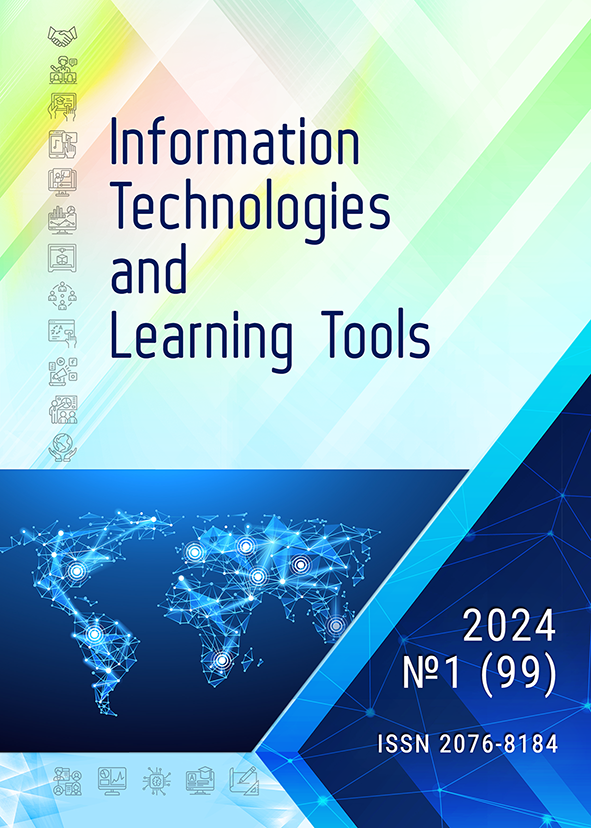Abstract
Digital transformation and the rise of Industry 4.0 in times of turbulence are changing the way organizations operate and interact with the people they serve. The massive penetration of network software applications and cloud services forces businesses to digitize their processes and provide innovative products and services. Such mass penetration is changing production and business processes, the labour market, and the basic portrait of the workforce, regardless of industry or role. In addition, we are seeing a shift in the basic skills needed in science, research and development, engineering, IT, management, entrepreneurship, and more. These skills are transformed in accordance with the technological restructuring of productive forces, at the same time, educational activity is characterized by some lag in its development. It is important to realize that the nature and speed of progress dictates the need for an advanced workforce with a multidisciplinary educational background (especially given the number of predictions promising full automation in the next few decades), regardless of industry or function, especially when it comes to deep tech start-ups and high-tech enterprises. It was concluded that in the framework of modern technical evolution, in the conditions of high-tech, and especially deep tech structures, competencies in digital entrepreneurship are, if not key, then very important. The education market is also undergoing changes, but university education is very slow to respond to digital processes. The article proposes a method of assessing the level of competences of students of economic specialties in the field of learning digital entrepreneurship based on soft computing, and also formulates the key basic competencies that arise during the online course of digital entrepreneurship, which are based on the latest development trends in the field of IT. Special considerations for using the model for higher education institutions are discussed. The proposed mathematical model has the property of universality and can be applied to obtain basic statistical samples of the level of competence acquisition based on online courses in various areas of the real sector of the economy.
References
A. Arnaud de la Tour, P. Soussan, N. Harlé, R. Chevalier & X. Xavier Duportet, From tech to deep tech: Fostering collaboration between corporates and startups. Boston Consulting Group, Hello Tomorrow. [Online]. Available: http://media-publications. bcg. com/from-tech-to-deep-tech. pdf (in English).
Y. Chen, M. Roldan “Digital Innovation during COVID-19: Transforming Challenges to Opportunities”, Commun. Assoc. Inf. Syst., 48, pp. 15–25, doi: https://doi.org/10.17705/1CAIS.04803. (in English).
Deep Knowledge Analytics. (2022). Ecosystem in Ukraine deeptech and Ai Tech Ecosystem. [Online]. Available: https://analytics.dkv.global/Ukraine/teaser.pdf (in English)
A. Bayler, O. Oz, “Academicians’ Views on Digital Transformation in Education”, International Online Journal of Education and Teaching (IOJET), 5(4), pp. 809-830, [Online]. Available: https://files.eric.ed.gov/fulltext/EJ1250526.pdf (in English).
Sousa Maria José & Carmo, Manuel & Gonçalves, Ana Cristina & Cruz, Rui & Martins, Jorge Miguel, 2019. "Creating knowledge and entrepreneurial capacity for HE students with digital education methodologies: Differences in the perceptions of students and entrepreneurs," Journal of Business Research, Elsevier, vol. 94(C), pages 227-240. (in English)
Prendes-Espinosa Paz, Solano-Fernández Isabel María, García-Tudela Pedro Antonio «EmDigital to Promote Digital Entrepreneurship: The Relation with Open Innovation», Journal of Open Innovation: Technology, Market, and Complexity, Volume 7, Issue 1, 2021, 63, doi:https://doi.org/10.3390/joitmc7010063. (in English)
G. Nabi & R. Holden, “ Graduate entrepreneurship: Intentions, education, and training”, Education & Training, 50(7), 545–551. doi: https://doi.org/10.1108/00400910810909018. (in English).
Vincenzo Maltese “Digital Transformation Challenges for Universities: Ensuring Information Consistency Across Digital Services”, Cataloging & Classification Quarterly, 56:7, 592-606. doi: https://doi.org/10.1080/01639374.2018.1504847. (in English).
О. Shparyk, Konceptualni zasady tsyfrovoji transformatsiji osvity: jevropejskyi ta amerykanskyi dyskurs. Ukrainian Pedagogical journal, (4), 65–76. doi: https://doi.org/10.32405/2411-1317-2021-4-65-76. (in Ukrainian)
V. V. Kovalenko, М. V. Marjenko and A. C. Sukhih, The use of digital technologies in the process of blended learning in institutions general secondary education: methodical recommendations. ІІТTA NАPS of Ukraine. [Online]. Available: https://lib.iitta.gov.ua/728506/1/Методичні%20рекомендації%20ISBN%20978-617-95182-5-6.pdf (in Ukrainian)
М. Marjenko, and А. Sukhih, Organization of the educational process in institutions of general secondary education by means of digital technologies during martial law. Ukrainian Pedagogical journal, (2), 31–37. doi: https://doi.org/10.32405/2411-1317-2022-2-31-37. (in Ukrainian)
Accelerating Digital Transformation for Long Term Growth. Digital business delivers for people, planet and prosperity. World Economic Forum. (2023). [Online]. Available: https://initiatives.weforum.org/digital-transformation/home (in English).
H. Chesbrough, & A. K. Crowther, “Beyond high tech: early adopters of open innovation in other industries”, R&d Management, 36(3), 229-236.doi: https://doi.org/10.1111/j.1467-9310.2006.00428.x. (in English).
M. Portincaso, A. de la Tour & P. Soussan, The dawn of the deep tech ecosystem. Boston Consulting Group & Hello Tomorrow, 3, 19-44. [Online]. Available: https://media-publications.bcg.com/BCG-The-Dawn-of-the-Deep-Tech-Ecosystem-Mar-2019.pdf (in English).

This work is licensed under a Creative Commons Attribution-NonCommercial-ShareAlike 4.0 International License.
Copyright (c) 2024 Олег Камінський, Юлія Єрешко, Сергій Кириченко, Марина Дученко


